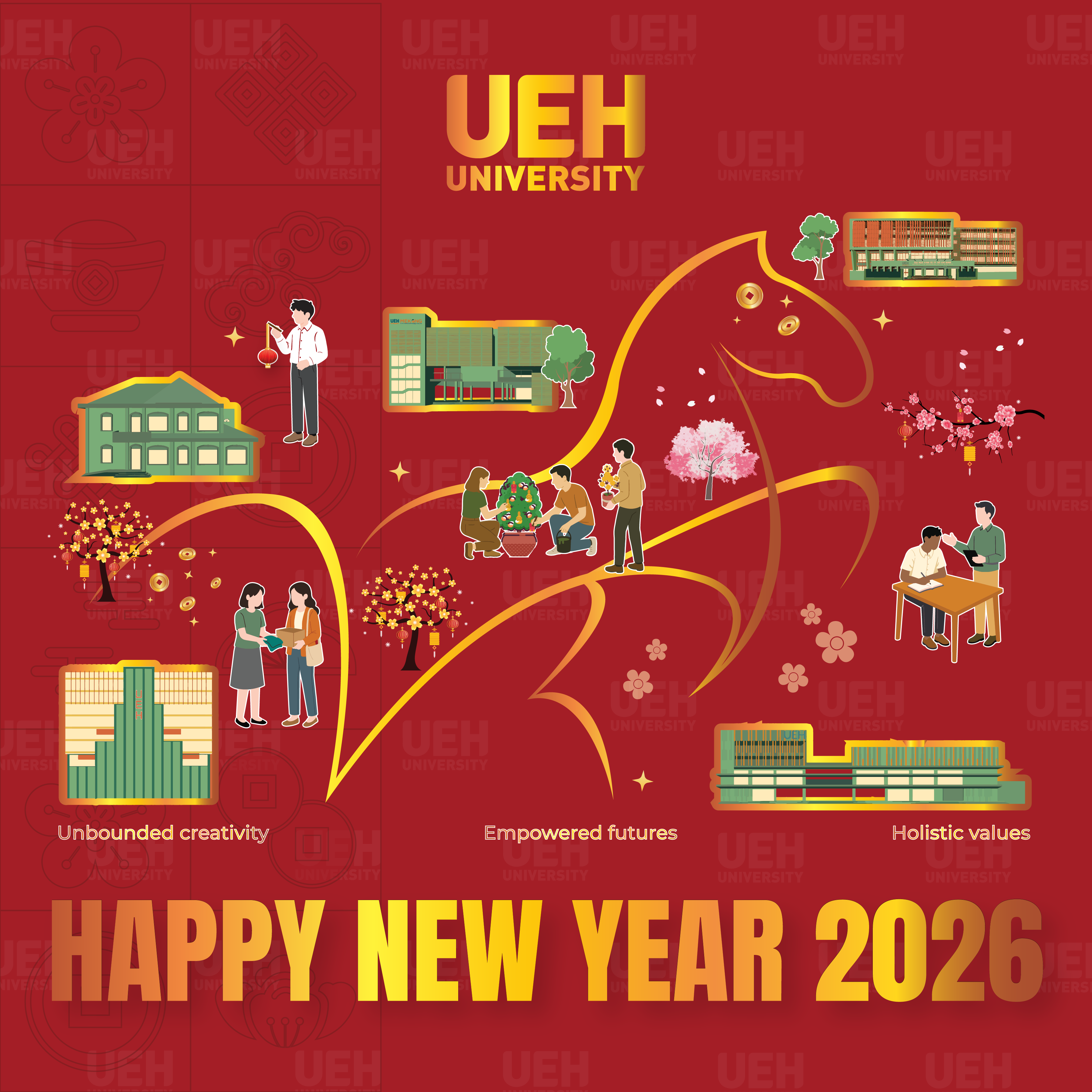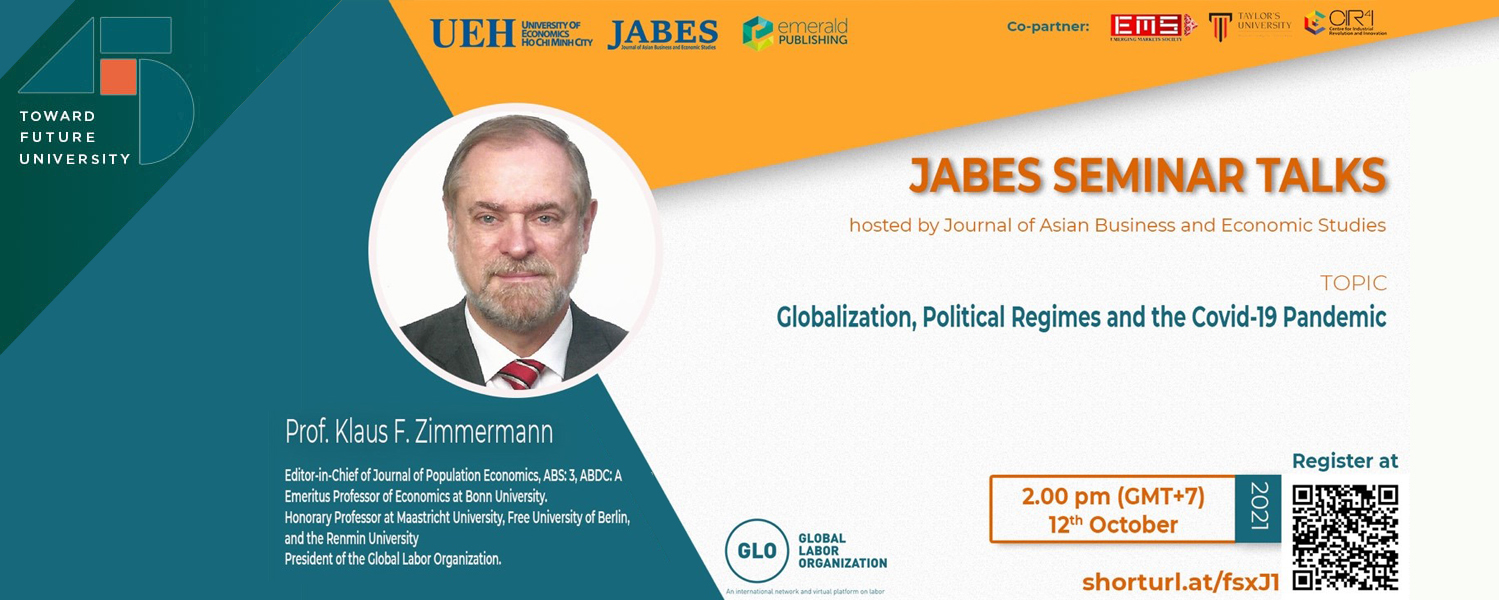
October JST Talk on Globalization, Political Regimes and Covid-19 Pandemic
29 Nov, 2021
On October 12th, 2021, Journal of Asian Business and Economic Studies (JABES) successfully held a final talk session in a seminar-organizing plan: “Economics and Business: Agendas for the Uncertain World 2021”. October JST Talk honorably welcomed a distinguished guest - Prof. Klaus F. Zimmermann, under “Globalization, Political Regimes, and the Covid-19 Pandemic” theme with more than 100 in-and-out-boundresearchersincluding from following nations: China, India, America, Australia, Singapore, Malaysia, Indonesia, Saudi Arabia, Taiwan and so on.
When World War I was about to come to an end, Spanish Flu 1918, one of the most historically dangerous pandemics, was estimated that approxiamately 500 million people (equivalent to 33% world population at that time) got infected and 50 million people were dead. Immediately, pandemic controlling policies (social distancing, closing restaurants and so on), issued along with public health services, successfully controlled the pandemic. Currently, the whole world has once again faced another pandemic - Covid-19. Therefore, is globalization advantageous or disadvantageous towards other nations’ pandemic control? This is an extremely central question stated in the context that countries have been making efforts to decrease infection and death rates due to Covid-19 pandemic.
Covid-19 pandemic has been confirmed to have caused a huge impact on the economy, society and politics worldwide. To lower Covid-19 spread, many countries have gradually modified their policies and regulations at limiting direct contact among citizens; they are tending to be stricter along with the emergence of dangerous Covid-19 variants. The birth of Covid-19-preventing vaccines and the widely-vaccination-implementing reality bring positive signals in terms of people’s health and economic recovery. Prof. Klaus F. Zimmermann who researched “Globalization, Political Regimes, and the COVID-19 Pandemic”enthusiastically shared his research findings and opened research contents associated with the topic at October JST Talk.
Prof. Klaus F. Zimmermann is a German Economist and Honorary Professor of Economics at Bonn University (Germany), Maastricht University (Netherlands), Free University Berlin (Germany), and Renmin University of China (China). At present, Prof. Klaus F. Zimmermann is being Editor-in-Chief of Journal of Population Economics (ABS: 3; ABCD: A), simultaneously, President of Global Labor Organization). Prof. Zimmermann’s research-focused issues comprise population, labor, development and emigration.
In the opening, Prof. Zimmermann raised a question: Is globalization the reason causing Covid-19 pandemic? Which challenges does Covid-19 pandemic bring about?What is the role of political institutions in coping with this pandemic?
Prof. Zimmermann quoted research by Qiu et al. (2020), pointing out that China well accomplished minimizing the harms of Covid-19 pandemic thanks to timely policies: tightly-controlling methods, city quarantine, local public health system. limiting crowds, avoiding face-to-face contact, minimizing transport from highly infectious locals to the lower ones and so on. Since the vaccines were invented, the infection possibility of Covid-19 virus has been narrowed. Even though vaccine production is processed in several developed countries, in the globalization context, due to international relations, vaccines have been distributed to every country. In addition, Covid-19 pandemic raises a research-required question of an early warning system, an issue for both developed countries like America in particular and World Health Organization (WHO) in general.
Prof. Zimmermann affirmed that Covid-19 pandemic spreads to the world at an extreme speed, which humans are key causing factors. Prof. Zimmermann researched the initial impacts of globalization on the pandemic spread among nations throughout the following indexes: (1) initially infectious speed; (2) infection scale; (3) mortality rate. Based on the data and the statistics collected from 118 nations, the analysis result reveals that countries with open economy were affected more rapidly and enormously - it is related to human interaction through travel and emigration and implies that the pandemic can be prevented by creating distances among nations and concentrating on residents’s transport. However, this is not an argument against globalization; this expresses the possibility of greater health infrastructure investment throughout international cooperation for pandemic prevention. The efficiency of health investment and international cooperation was acclaimed in case the mortality rate was lower. Besides, it is requested to develop suitably flexible national-distancing systems and identify early the indexes to detect future pandemic outbreak possibility. Furthermore, trading policies are demanded to accelerate effectively the exchange of goods and services associated with the pandemic; instead of obstructing them (there is no “one nation is above all” policy, replacing it, inner-nation solidarity is required).
One surprising finding from Prof. Zimmermann’s research is that countries applying less strict pandemic prevention commonly have higher infection and mortality rates than those of the stricter ones. However, the countries applying the less-strict pandemic prevention may not respond immediately in the short term; however, value citizens’ lives and health become greater.
To end his presentation, Prof. Zimmermann reaffirmed that decreasing Covid-19 infection is a long-term fight. Globalization is an essential inclination and enormous strategy; political regimes are not central but themore importantly behavior understanding to develop responsive strategies in each national context.
Prof. Zimmermann’s presentation at October JST Talk temporarily closed the seminar on “Economics and Business: Agendas for the Uncertain World” in 2021 - organized flexibly via online and offline modalities in Covid-19 context. In the upcoming time, JABES will keep being the bridge holding academic exchange activities with the aim of assisting national and international researchers to illustrate their research findings and discussions as well as initializing further upcoming researches.
Photos related to the Talk
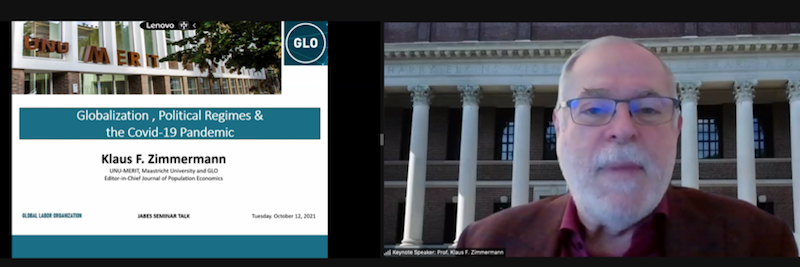
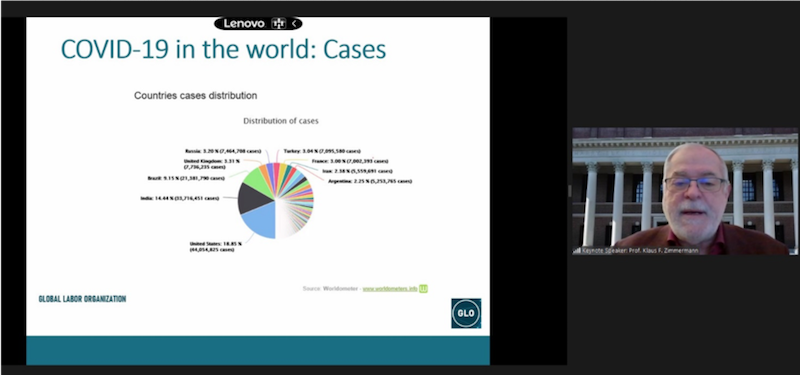
Prof. Klaus F. Zimmermann presenting his research at October JST Talk

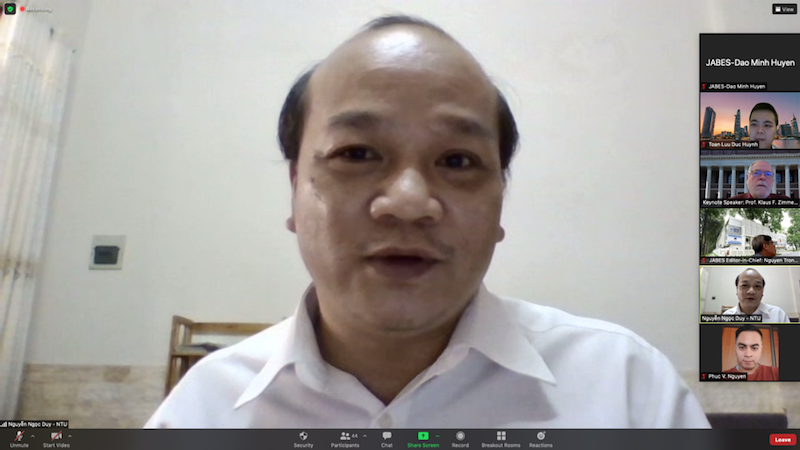
A scholar questioning and discussing with Prof. Zimmermann in Q&A Session
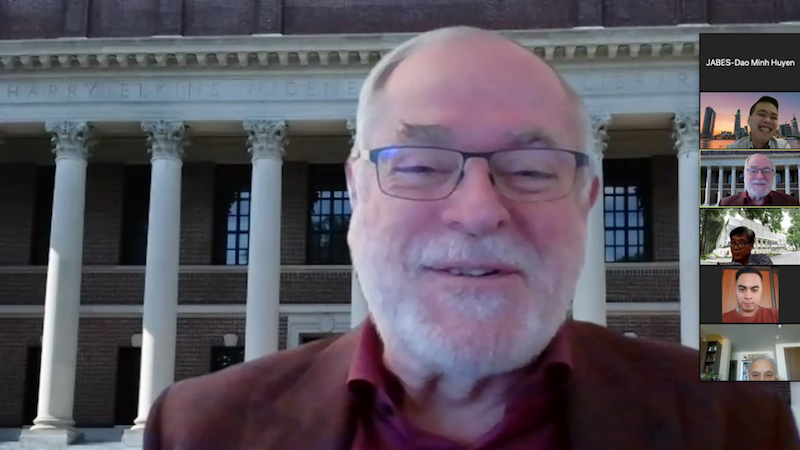
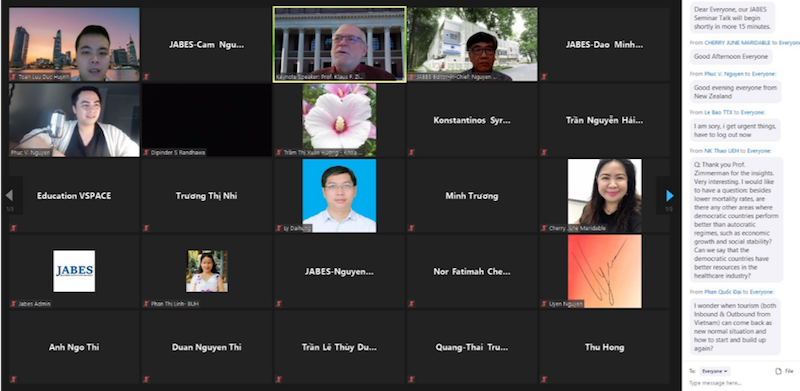
Prof. Zimmermann answering attended scholars’ inquiries
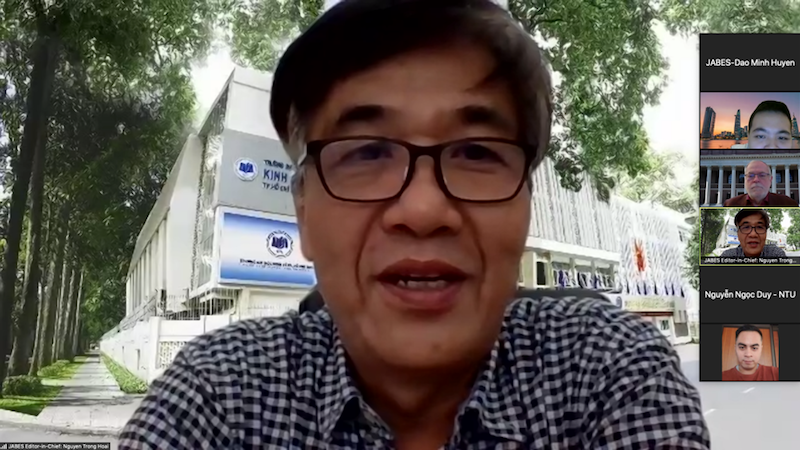
Prof. Nguyen Trong Hoai - Editor-in-Chief of JABES showing his appreciation to Prof. Zimmermann and expressing his direct discussing expectation to Prof. Zimmermann in the future
Further information
All new information related to JABES and outstanding events like ACBES International Conference and the JST Talks will be updated regularly on official information channels of JABES as follows
- JABES Facebook: https://www.facebook.com/jabes.ueh.edu.vn
- JABES Website: http://www.jabes.ueh.edu.vn/
- JABES on Emerald Group Publishing:
- https://www.emeraldgrouppublishing.com/journal/jabes
- ACBES Website: https://acbes.ueh.edu.vn/
- JABES Youtube: http://shorturl.at/jnoOR
News, Photos: JABES

